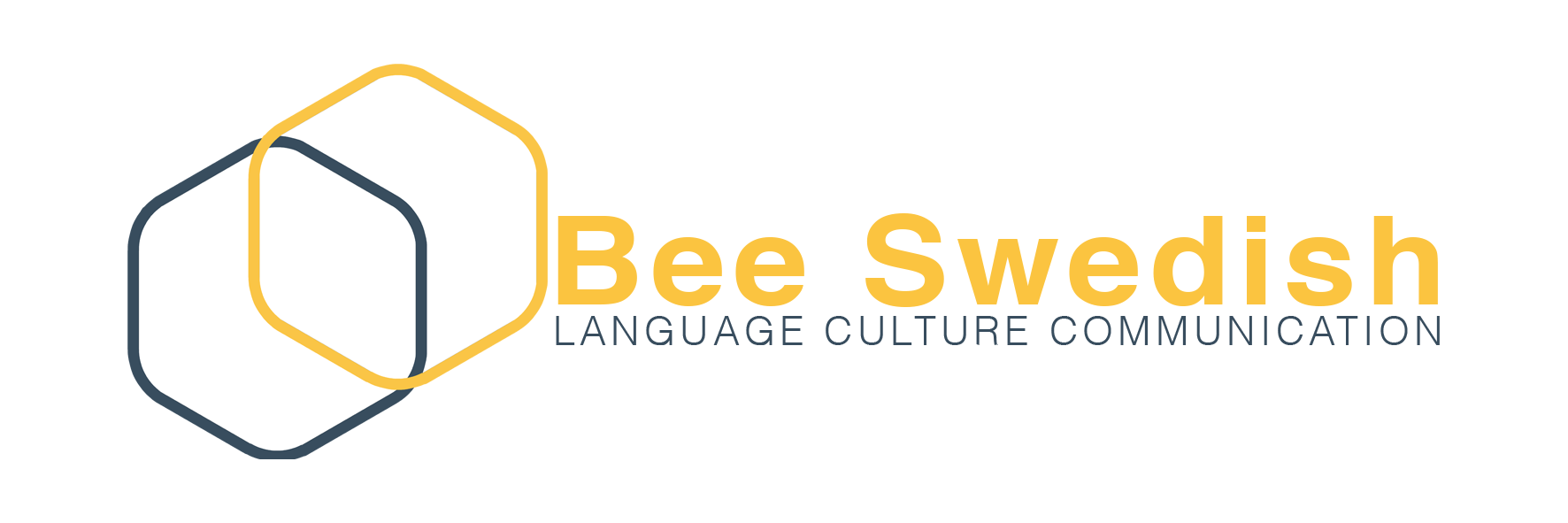Honeymoon is over, the sun sets a little earlier every evening, and the Swedish mood is dipping. And with that, so is your positive, easy-going attitude towards learning Swedish and trying to get more integrated at your Swedish workplace or with your Swedish new friends.
Arrgh! It is so frustrating to listen to a conversation and not being able to participate! I have often experienced this with my Spanish and Danish friends. I have a fair understanding of what they are saying, but my own contribution consists only of stupidly gawking at them, and once in awhile, offering them a smile. But how can I reply back and be a part of that conversation when neither my Spanish nor my Danish skills are strong enough?
Being a new-comer or non-Swedish, you have probably have had the same thought but in regards to Swedish.
It is a dilemma, where you risk not being a part of the grupo if you reply or comment in English. The reason being, you stand out and therefore you are excluding yourself from participating, when actually trying to participate. Or, you stand out because everyone else switches to English and – boom – there goes another opportunity to practise your Swedish skills.
Luckily, there are small means but with a big impact that can solve this problem.
A quick-fix. You might not be aware of them, since they often come so naturally, and are so integrated in everyday conversations. Or you are painfully aware of these, if you entertain yourself by listening to people’s phone conversations on public transport. We are talking reaction phrases and colloquial expressions here.
If you understand the overall context of a conversation, you can always comment in a short but communicative way by throwing in the occasional reaction phrase. Short, effective, and perfectly cohering with Swedish communication norms:
Vad intressant! [How interesting] (When you have nothing else to say)
Vad spännande! [How exciting] (Classic, can be used in any context)
Vad bra! [Good] (As soon as everything is vaguely ok, go for it)
Vad roligt! [Fun] (Not only for fun things but also for any sort of success/achievement)
Vad kul! [Fun] (Fun, and not only for fun, again)
Vad mysigt! [cosy] (meaning, that sounds really boring)
Vad konstigt! [Strange] (Many things are, for Swedes)
Vad synd! [What a shame] (Indeed)
Vad tråkigt! [What a pity] (Literally translated, boring, but in most cases, meaning sad. Can be used appropriately from any tiny thing like finding no raisins in your cookie, to huge dramatic events like death and disaster, as long as it is considered negative.)
A few notes to guide you through the usage of these phrases.
First, please do not pronounce the ‘d’ in vad. No Swedish person ever does that, and it only makes it difficult – to listen to, and ro pronounce. In fact, the vad is not stressed whatsoever.
Second, place them well. When your conversation makes a short pause in their monologue, you go ahead and say Vad intressant!. (You need to put a lot of emphasis on it in order not to sound sarcastic.) It is considered rude to interrupt. It is considered confusing to be sarcastic.
Third, I know that you may feel a little awkward by reducing a your answer to Vad intressant, if someone has told you something that deserves much more involvement than that. Fair enough, you are probably right. But Swedes appreciate this simplistic encouragement and are so used to it that they may feel a little unsettled if you offer them a more complex reaction than this.
If you are told of something out of the ordinary, you can spice up the conversation with the following:
Det är inte sant! [I can’t believe it] (No, really)
Men Gud! [God!] (Most frequently used by agnostics)
Herregud! [Mister (!) God!] (When you are shocked)
Skojar du? [Are you joking?] (Only when you believe they are not)
Shit Pommes Frites! [untranslatable]
By using such colloquial phrases you will sound, and also feel, a lot more integrated in the community of colleagues, friends or other Swedes you may be talking to. In fact, you will sound so much like a huge number of Swedes who rarely say anything else than this, that nobody could guess you are not.
Last, some phrases to reflect your excellent social skills.
These often relate to people´s short comments about running a race, launching a new project, celebrating their birthday, going away on a trip, helping you out, etc..
Lycka till! [Good luck]
Grattis! [Congratulations, or, Happy Birthday]
Trevlig resa! [Enjoy your journey]
Trevlig semester! [Enjoy your holidays]
Trevlig helg! [Have a good weekend]
Tack för hjälpen! [Thanks for helping me]
Now, in case you are the one hearing these phrases, you might feel a little stupid not knowing what to reply. But this is even easier. Basically, Tack, tack så mycket, or tusen tack [Thank you] always works. If you would like to return the greeting, simply go Tack detsamma!
So, in order to blend in more, please use all these small means that create a big impact! Get more into conversations and at the same time practice your Swedish communication skills more, regardless of level. I do that in Spanish and Danish and now it feels easier and less frustrating. “The honeymoon” might be over but a new trip and adventure lies ahead!
Buena suerte!
Held og lykke!
Good luck!
Lycka till!
© Djina Wilk, 2016

